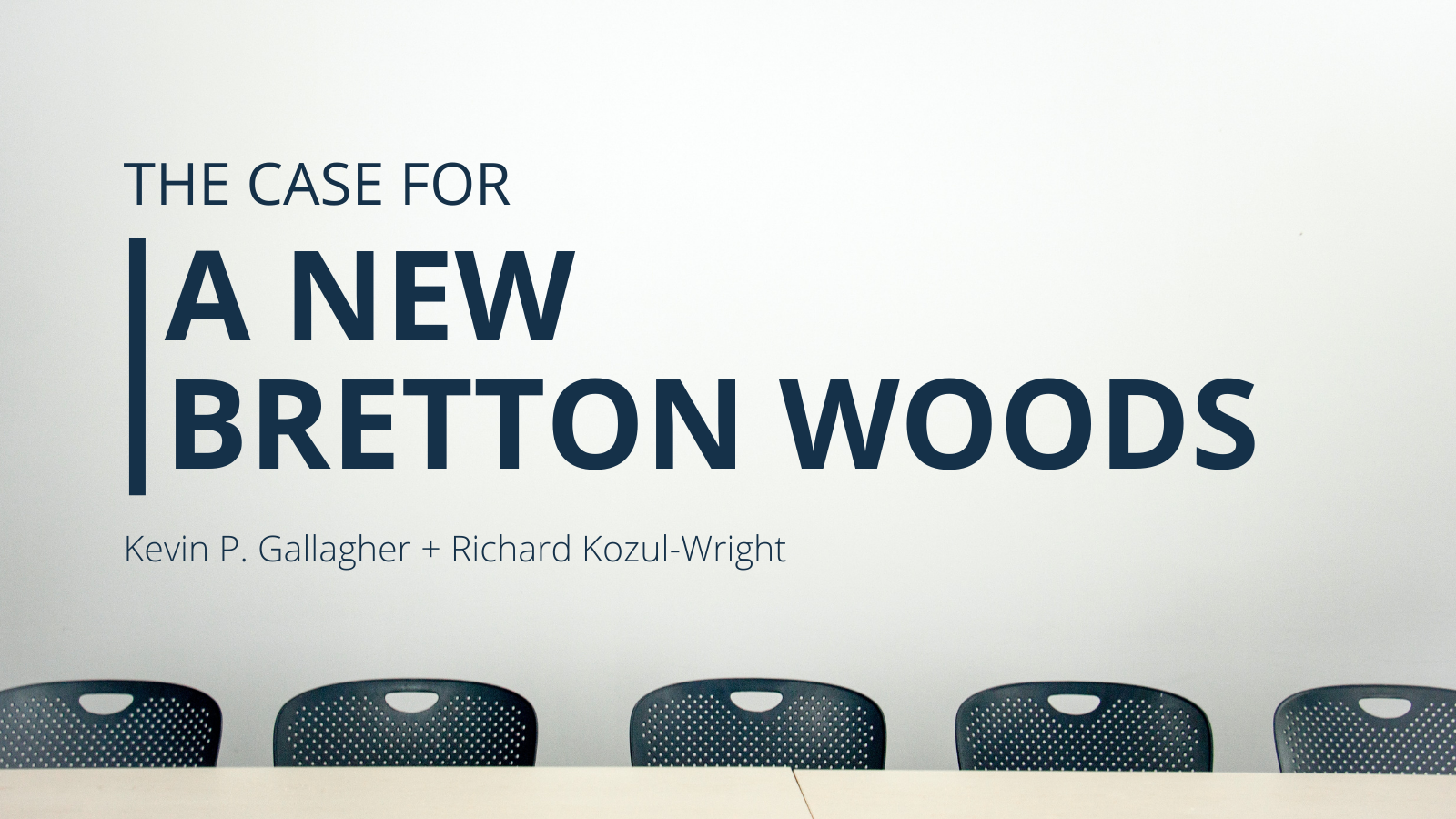
In 1944, as World War II was drawing to a close, 44 nations convened in a small community in New Hampshire to undertake an unprecedented endeavor: the restructuring of the global financial system. Institutions such as the **International Monetary Fund (IMF)** and the **World Bank** were established as a result of the **Bretton Woods Conference**, which set the groundwork for a new era of economic cooperation. This monetary system was designed to foster postwar recovery and stability.
The call for a **”New Bretton Woods”** is becoming increasingly urgent as the world confronts **climate change, widening inequality, sovereign debt distress, technological disruption, and growing geopolitical fragmentation**.
However, what would a contemporary Bretton Woods resemble? In order to ensure that global finance is suitable for the 21st century, what reforms are necessary?
Why the Original Bretton Woods Continues to Be Relevant
The Bretton Woods system of 1944 was groundbreaking in its era. The following was established:
* **Fixed exchange rates**, which are tied to the U.S. dollar (and the dollar to gold) The **IMF** was established to guarantee currency stability and offer emergency lending.
* Establishment of the **World Bank** to facilitate post-war reconstruction and development
Despite the fact that the gold standard dissolved in the 1970s, these institutions continue to influence global finance. Nevertheless, they were designed for a distinct era—one in which **Europe and the U.S.** dominated trade, emerging markets were marginal, and **climate, technology, and pandemics** were distant concerns.
The fractures are now visible.
The Argument in Favor of a New Bretton Woods
The current global financial architecture is experiencing duress from a variety of sources:
### 1. **Global Debt Crises Are On The Rise**
More than 60% of low-income countries are either in or at significant risk of debt distress. However, debt restructuring continues to be sluggish, fragmented, and dominated by the interests of creditors.
### 2. **The Global South Requires a Greater Voice**
The majority of the world’s population and growth are represented by emerging and developing nations, yet they are underrepresented in institutions such as the IMF and World Bank.
### 3. **The Necessity of Significant Investment in Response to Climate Change**
By 2030, the annual funding requirements for climate adaptation and mitigation in developing countries will exceed **\$2 trillion**, which is significantly higher than the current funding levels.
### 4. **Traditional Finance Faces Challenges from Digital Disruption**
Digital currencies, fintech, and decentralized finance (DeFi) are revolutionizing the movement of money; however, global regulatory frameworks are significantly behind.
### 5. **Multilateralism Is Being Undermined by Geopolitical Fragmentation**
The division of global institutions into rival blocs is a potential consequence of the conflict in Ukraine, U.S.-China tensions, and the emergence of nationalist politics.
What would a Bretton Woods of the 21st century resemble?
The purpose, values, and instruments of global finance would be redefined by a New Bretton Woods, which would not merely modify existing regulations.
### 1. **Redefining the Role of the IMF and World Bank**
* The IMF should transition from short-term crisis lending to long-term **economic resilience building**, which should encompass support for public health, digital infrastructure, and climate.
* In order to leverage private capital for public benefit, the World Bank must make a decisive transition from project lending to **blended finance** and **climate risk insurance**.
### 2. **Development of a Global Sovereign Debt Framework**
* A formal, **inclusive mechanism** for debt restructuring that involves both private and public creditors.
* Implementation of **automatic debt suspension clauses** in the event of global emergencies, such as pandemics.
* The inclusion of additional creditor countries in initiatives such as the **Common Framework**.
### 3. **Establishment of a Global Climate Financing Compact**
* The annual climate finance pledge of approximately $100 billion must be met and surpassed by wealthy nations. The establishment of a **Global Green Bank** to allocate long-term capital to sustainable infrastructure.
* The inclusion of **climate contingency clauses** in sovereign debt contracts to safeguard fiscal space in the aftermath of climate disasters.
### 4. **Democratizing Global Financial Governance**
* Adjust the voting percentages of the IMF and World Bank to align with the realities of the 21st century, rather than the power structures of the mid-20th century.
* Incorporate the perspectives of **Indigenous communities, youth, and civil society** into the decision-making process.
* Establish institutional representation from **Africa, Latin America, South Asia**, and **small island developing states**.
### 5. **Establishing Regulations for the Digital Financial Age**
* Develop global standards for the regulation of digital assets and **Central Bank Digital Currencies (CBDCs).
* Facilitate the coordination of tax and regulatory frameworks to **reduce financial secrecy and crypto-based tax avoidance**.
* Ensure that marginalized populations are included in the digital transformation process, rather than excluded.
The Obstacles Ahead
It will be challenging to establish a new Bretton Woods. Reform necessitates **political will**, particularly from those who derive the most advantages from the existing system. However, history has demonstrated that **crisis generates opportunity**, and we are certain that we are currently experiencing one.
The COVID-19 pandemic exposed the fragility of our systems and the efficacy of coordinated action. Similar challenges are now presented by climate change, AI-driven disruption, and global inequality.
The inquiry is no longer whether the system necessitates reform. The question is whether the world’s leaders can unite, as they did in 1944, to **create a financial system that is mutually beneficial for both capital and humanity.**
Final Thoughts: A New Social Contract for Global Finance
Balance statements and bank reserves are not the sole components of global finance reform. It is about **restoring faith in global cooperation** and ensuring that finance serves humanity, rather than the other way around.
A new Bretton Woods moment is not only desirable, but also **essential**.
Let us seize the opportunity.
Leave a Reply